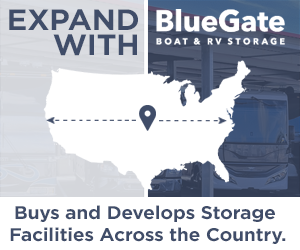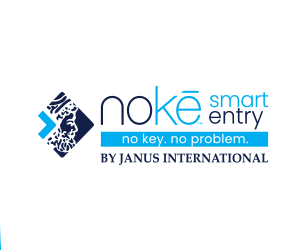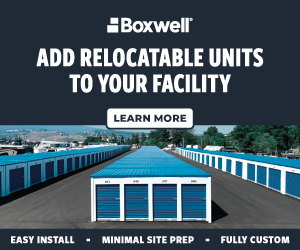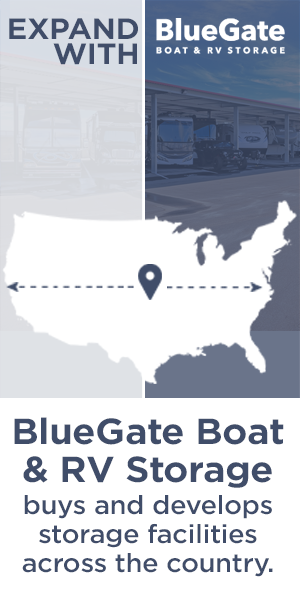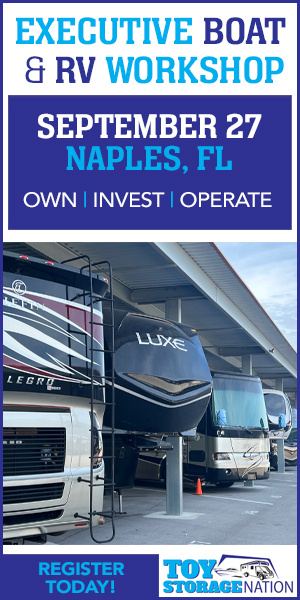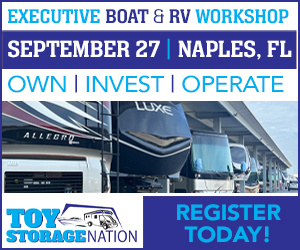By Brett Copper
When running an RV and boat storage facility, ensuring your site is secure against unexpected risks is crucial. While it’s common to have insurance to safeguard against disasters like floods and fires, it’s also important to consider other aspects like employment-related disputes or legal liability for customers’ belongings.
Insurance provides peace of mind, allowing facility owners to focus on their primary business activities without worrying about unexpected expenses jeopardizing their investments. With appropriate insurance coverage, RV and boat storage facility owners can retain their business and reputation. Therefore, investing in the right insurance coverage is crucial to protect your investments and ensure long-term success.
The Essentials
Engaging with an Experienced Insurance Agent

Legal Protection for Stored Belongings
For boat and RV facility owners, it’s essential to consider the legal implications associated with the goods stored by customers. While a standard self-storage lease may release the business owner from liability for a tenant’s possessions, lawsuits can still emerge. Specialized insurance provides a robust defense against such risks, extending coverage to the facility owner for this specific exposure. This tailored coverage addresses potential legal liabilities and offers a crucial layer of protection in scenarios where lease agreements may be insufficient.
Legal Protection for Sales and Disposal Risks

Protection Against Catastrophic Business Loss
These facilities are vulnerable to unexpected disasters that can cause significant damage. Having insurance coverage for catastrophic business loss can protect you financially in case of any natural calamities, fires, or other catastrophic incidents. There has been a large uptick in catastrophic events, especially in coastal states. Consult with your bank or capital partners to adhere to any specific coverage amounts needed for loan agreements.
Compliance with Building Codes and Standards
Adherence to building codes and standards is a legal requirement and a factor influencing insurance coverage. Owners of facilities should make sure that their insurance policy takes into account adherence to codes and standards to reduce the risks linked to non-compliance. Additionally, it can be a good idea to ask your Agent if there are specific Cap Ex improvements you could make that may drive down insurance premiums. These improvements may also add to the overall value of your facility.
Cyber Risks

Claims Related to Employment
Disputes and claims related to employees can arise in any business. Owners of facilities must keep in mind that having insurance coverage for employment-related claims is necessary to safeguard themselves from legal and financial outcomes that arise due to workplace conflicts. These exposures can include onsite Managers, 1099 contractors or even call center Agents. It is important to work with your insurance agent to ensure you have the correct coverages for your specific type of management.
Critical Insurance Considerations You Shouldn’t Ignore
If you own a boat and RV self-storage facility, it is vital to invest in the right insurance coverage to protect your business and its assets. To achieve this, you need to consider working with experienced insurance agents, legal liability for customer goods, liability related to sales and disposal, catastrophic business loss, compliance with building codes, cyber risks, and employment-related claims. By addressing these factors, facility owners can confidently navigate the insurance landscape. Although self-storage management companies, such as Copper Storage Management, can offer recommendations, it is essential for facility owners to take proactive measures to secure suitable insurance coverage for their needs.
Brett Copper grew up in the self-storage industry under his father’s tutelage, working with a leading self-storage consulting firm since he was a teenager. Seeing a growing need for alternative management solutions in the industry, he and the rest of the Copper family launched Copper Storage Management, which has become one of the largest (non-REIT) third-party management companies specifically catering to remote storage facilities. Copper Storage Management currently manages approximately 200 facilities nationwide and continues to grow at an unprecedented rate. The Coppers have also acquired and sold large portfolios of unmanned facilities under the brand Copper Safe Storage.










